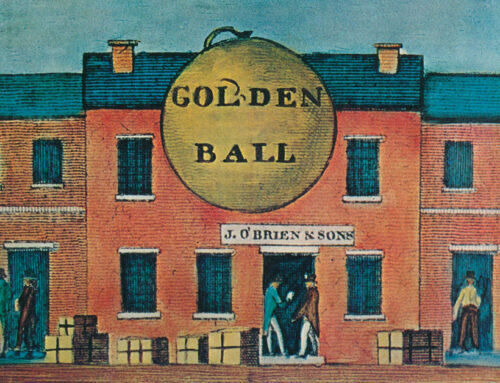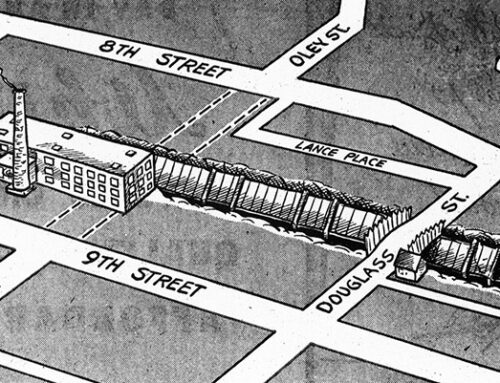Pennsylvania has earned a reputation as the heart of the American potato chip industry, a title rooted in the state’s rich agricultural history, its entrepreneurial spirit, and the rise of family-owned snack companies. From small towns to bustling factories, Pennsylvania’s landscape is dotted with potato chip makers whose traditional methods and dedication to quality have helped shape the nation’s snack food industry.
Early Agricultural Roots
The story of Pennsylvania’s dominance in the potato chip industry begins with its fertile soil and strong agricultural traditions. Throughout the 19th and early 20th centuries, the state was home to many potato farms, which provided a steady supply of this essential crop. Farmers across the state grew abundant harvests of potatoes, and in the early 1900s, small communities began experimenting with new ways to utilize this versatile vegetable.
One of those ways was frying thin slices of potatoes—a method that quickly became popular. This simple yet delicious innovation would soon lay the foundation for an industry that would put Pennsylvania on the map.
The Birth of Potato Chip Makers
Good’s Potato Chips has a long and cherished history as a family-owned snack company known for producing traditional, high-quality potato chips. The company is based in Adamstown, PA, and was founded in 1886. Over the years, Good’s has built a loyal customer base, especially in the Lancaster County and central Pennsylvania regions, by adhering to traditional cooking methods and a commitment to quality.
What makes Good’s Potato Chips unique is the traditional method they use to prepare their chips. Good’s is one of the few companies that still fry their chips in lard, a process that was common in the early days of chip making but has largely been replaced by modern oils. The use of lard gives Good’s chips a rich, hearty flavor and crispy texture that many of their customers find superior to more widely available brands.
This old-fashioned method is part of what has helped Good’s maintain a loyal following, as consumers appreciate the distinct taste that comes from the chips being fried in small batches using this method.
Many Pennsylvania residents have grown up eating Good’s Potato Chips, making them a staple at local gatherings, barbecues, and picnics.
In the early 20th century, a few entrepreneurial individuals in Pennsylvania began producing potato chips on a commercial scale, selling them in bags to meet growing demand. Among the pioneers was Earl Wise, who founded Wise Potato Chips in Berwick, PA, in 1921. Like many early chip makers, Wise started small, frying extra potatoes from his delicatessen to avoid waste. The crispy chips became an instant hit, and Wise expanded his operations, eventually growing into one of the most recognized snack brands in the northeastern U.S.
Around the same time, Bill and Salie Utz founded Utz Quality Foods in Hanover, PA, in 1921. With Salie frying chips by hand and Bill delivering them to local stores, Utz quickly gained popularity for its high-quality snacks. The company would go on to become one of the largest independent snack makers in the country.
As more family-owned businesses emerged, Pennsylvania’s role in the potato chip industry grew. Herr’s, founded in Nottingham, PA, in 1946, and Martin’s Potato Chips, established in Thomasville, PA, in 1941, also began producing chips in small batches, focusing on fresh, local ingredients and traditional cooking methods like kettle frying.
Gibble’s was founded by Harry and Iva Gibble in 1959 in the small town of Chambersburg, PA. The company started as a family-owned operation, producing homemade-style potato chips and snacks. From the beginning, Gibble’s was known for using high-quality ingredients, and their potato chips were distinct because they were hand-cooked in lard, giving them a rich, savory flavor that stood out from other brands.
Why Pennsylvania?
Several factors contributed to Pennsylvania becoming the heart of the American potato chip industry:
- Access to Agriculture: Pennsylvania’s agricultural resources, particularly its potato farms, provided an abundant and steady supply of raw materials.
- Geography: The state’s central location along the East Coast allowed easy distribution to major metropolitan areas like New York City, Philadelphia, and Washington, D.C., helping these companies expand their markets.
- Entrepreneurial Spirit: The rise of family-owned businesses, often based on traditional cooking techniques passed down through generations, fostered a culture of quality craftsmanship.
- Innovative Approaches: Pennsylvania potato chip makers embraced innovations, such as Art Ross‘ invention of a mechanical potato chip machine, which increased production efficiency and helped these small companies scale their operations.
A Strong Sense of Tradition
While the snack food industry has grown tremendously, many Pennsylvania-based potato chip companies have remained committed to their roots. Companies like Middleswarth (Founded: 1942, Location: Middleburg, PA), Dieffenbach’s (Founded: 1964, Location: Womelsdorf, PA), Good’s (Founded: 1886, Location: Adamstown, PA), Snyder of Berlin (Founded: 1947, Location: Berlin, PA – not to be confused with Snyder’s of Hanover, which focuses on pretzels) andBickel’s (Founded: 1954, Location: York, Pennsylvania) have continued to hand-cook their chips using time-honored methods, like frying in lard or kettle-cooking, which gives the chips a richer, crunchier texture. The consistency in flavor and quality has made these brands local treasures and has earned them dedicated followings.
This sense of tradition extends beyond just the cooking process. Family ownership has remained central to many of these companies’ identities. Even as they have expanded into larger-scale operations, the values of hard work, quality control, and community engagement have persisted.
Regional Loyalty and National Appeal
Pennsylvania’s potato chip makers have cultivated strong regional loyalty over the years. Locals have grown up with these brands, and many of the companies, such as Zerbe’s (Founded: 1947, Location: Bowmansville, PA) and Hartley’s (Founded: 1935, Location: Lewistown, PA), still distribute their chips within limited geographic areas. This focus on local markets has helped these smaller brands survive in a competitive industry dominated by giants like Frito-Lay.
At the same time, several of Pennsylvania’s chip producers have managed to break into national markets. Utz, for example, has expanded beyond the East Coast and now distributes its chips nationwide. Similarly, Herr’s has grown its footprint while continuing to innovate with new flavors and product lines.
Several local potato chip producers in Pennsylvania, have closed their doors over the years due to competition from larger national brands, financial difficulties, or changes in consumer preferences.
Tommy Dale Chips is remembered by many for producing potato chips that were packaged in iconic metal tins, similar to the way that other brands like Charles Chips packaged their snacks. Tommy Dale Chips were available only within a 100 mile radius of Reading. Their shop was first located in Laureldale on Elizabeth Ave. and later moved to Tukerton, PA on Water Street. Raymond P. Snyder had been the head of the company. Mr. Snyder passed away in 1972. Unfortunately, there is very limited publicly available information about the history of Tommy Dale Chips, and the exact year it was founded. Unlike larger regional or national brands, Tommy Dale Chips did not achieve widespread recognition, and details about the company’s origins, operations, and closure are not well-documented.

Charles Chips is a nostalgic American snack brand best known for its home delivery service of potato chips and snacks, packaged in iconic metal tins. The brand, which originated in the mid-20th century, became a beloved household name, particularly in the Northeastern and Midwestern United States.
Charles Chips was founded in 1942 by the Musser family in Lancaster, Pennsylvania, a region with a strong agricultural and snack food tradition. The company began producing its signature potato chips using high-quality potatoes, and the chips were hand-cooked in small batches, focusing on freshness and flavor.
The unique aspect of Charles Chips was its home delivery service, which started shortly after the company’s founding. The company delivered freshly made potato chips directly to customers’ homes in distinctive brown and yellow metal tins. This model was somewhat similar to how milkmen delivered fresh milk to homes at the time. The reusable tin containers were not only practical for preserving the chips’ freshness but also became a hallmark of the brand.
Throughout the 1950s and 1960s, Charles Chips expanded its reach beyond Pennsylvania, distributing to homes and stores throughout the Northeastern and Midwestern U.S. The company’s home delivery service became hugely popular, with customers anticipating the arrival of fresh snacks delivered to their doorsteps. Charles Chips became synonymous with home delivery, often remembered for the nostalgic sound of the delivery truck and the iconic tins.
While Charles Chips enjoyed decades of success, the company began to face challenges in the 1980s and 1990s. Changes in consumer behavior, including the rise of large grocery store chains and the decline of home delivery services, began to affect the company’s business model. Additionally, competition from larger national brands like Frito-Lay put pressure on smaller, regional snack companies like Charles Chips.
In the early 1990s, the company was sold, and production briefly moved to New Jersey. Despite efforts to keep the brand alive, Charles Chips struggled to maintain its once-dominant position. The company eventually filed for bankruptcy in 1991, marking the end of its home delivery model and widespread production.
After going out of business, the Charles Chips brand was revived in the early 2000s by a group of investors who recognized the nostalgic appeal of the iconic brand. Production was restarted, and Charles Chips returned to the market, selling products both in stores and online.
While the home delivery model was no longer the central focus, the company leaned heavily into the brand’s nostalgic appeal. The familiar tins made a comeback, along with the original recipes for potato chips, pretzels, and other snacks.
In recent years, Charles Chips has embraced its history while adapting to modern retail trends. The snacks can now be found in specialty stores, online, and through some distribution partnerships. The company still offers its chips in the classic tins, providing customers with both a snack and a piece of nostalgia.
The Future of the Chip Industry in Pennsylvania
Today, Pennsylvania continues to play a major role in the potato chip industry, with a blend of longstanding family-owned companies and newer snack food producers. While some of the smaller operations have faced challenges due to increased competition and shifting consumer preferences, many have adapted by introducing new flavors, expanded product lines, healthier snack options, and expanding their reach through online sales.
Pennsylvania’s legacy as the heart of the potato chip industry remains intact because of the state’s commitment to quality, its deep agricultural roots, and its ability to adapt while preserving the traditions that made its chips beloved in the first place. From small-town factories to national brands, the state’s potato chips carry with them a sense of history, craftsmanship, and pride that reflects the resilience of its people.






Leave A Comment